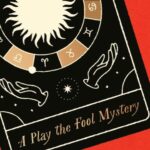Lydia Millet Reads From Her Short Story “Thylacine”
From the Emergence Magazine Podcast
Emergence Magazine is a quarterly online publication exploring the threads connecting ecology, culture, and spirituality. As we experience the desecration of our lands and waters, the extinguishing of species, and a loss of sacred connection to the Earth, we look to emerging stories. Each issue explores a theme through innovative digital media, as well as the written and spoken word. The Emergence Magazine podcast features exclusive interviews, narrated essays, stories, and more.
As part of Emergence Magazine‘s planned Apocalypse issue, they had commissioned four authors to approach this theme through fiction from the perspectives of past, present and future. In this week’s episode, listen to the first installment in the fiction series, entitled “Thylacine,” from the American novelist Lydia Millet. The short story, narrated by Lydia, explores historical endings as a man seeks the company and friendship of the last Tasmanian tiger housed in a failing zoo.
From the episode:
Hobart, Tasmania, 1935-36
Twice a day he could feel peaceful in the house, when the tension of grieving ebbed from his body. The muscles loosened. Inside their sheaths of tissue, his bones seemed less heavy. Shot through with the invisible air, like the limbs of a bird.
And then his mood lifted. Levitated by the magic of light. A sacred magic, he might have dared to call it. If he’d been a good Christian.
The first time came around dawn, when beams struck through the window glass and lit up the edges of things. A silver glow that prickled with energy. He could stand bathed in that glow, in its faint tinge of warmth.
The second time arrived at dusk. If the clouds were right, a violet light filtered in and bestowed a velvety calm on the walls and floor and curves of the furniture. Everyday objects turned delicate and beautiful, as they were meant to be. Sometimes he even had the fleeting, euphoric sense that his mother wasn’t gone at all. Not gone but only changed. Transmuted from matter into memory.
Those two times might have been enough if they’d lasted longer. He could have stayed out of the house during the day, between them. Then slept from the good time at dusk till the good time in the morning. Bracketed by light.
But each time lasted only minutes. Or seconds. It depended on the season, the position of the sun in the sky. On the clock, the time of illumination moved as the year wound on, following the sun’s shifting angle.
He’d tried to capture the perfect light by rearranging the lamps, adjusting the curtains and blinds. The bed and chairs and tables. Old pictures on the walls, her copies of famous paintings. The dearest, to her, was always the scene of a hill over a harbor, where a man in a red shirt was pushing a plow. In the background, ships sat at anchor in the blue water of a bay. Tiny legs stuck out of the water, and overhead, in the sky, hovered a man with widespread wings.
But none of it worked. Existing in the house, outside those moments, was like having a wire brush scrape over his skin. Often he couldn’t sleep, distracted by the scraping. It flared up from the soles of his feet in painful twinges. He tossed and turned, dreading the tickle and the burn.
Skin, he thought, was the organ that met the world. Everywhere on you, soft and porous and bristling with nerves. Easy to set afire.
It wasn’t the house’s fault. Or hers. He didn’t blame her for leaving it to him. The house was all she’d had. Her precious home. Where, he had been told, his father had also once lived. He’d been too small to remember this. His father had removed his own person but left the little house for them.
When she was alive, he’d rarely been alone. She’d played music on the gramophone and danced with him. Or talked cheerfully as she cooked. Said he’d gotten too thin. Needed to meet a nice girl. Well, that would be fine, he’d said. And what do you suggest? For a strategy?
It was just walls and a roof and floor. He couldn’t leave it, of course.
All that remained.
________________________________
Listen to the rest of this story on Emergence Magazine’s website or by subscribing to the podcast.
Lydia Millet is an American novelist and conservationist. She is the author of numerous books including A Children’s Bible; Love in Infant Monkeys, a finalist for the 2010 Pulitzer Prize; and My Happy Life, winner of the 2003 PEN Center USA Award for Fiction. Among her other awards and honors are a Guggenheim Fellowship and the Award for Merit for the Short Story. She lives in the desert outside Tucson, Arizona, with her two children and works for the Center for Biological Diversity.
Previous Article
Jowhor Ile on How Literature Shapes Our LivesNext Article
The Tenacious Constancy ofThe Merchant of Prato




















